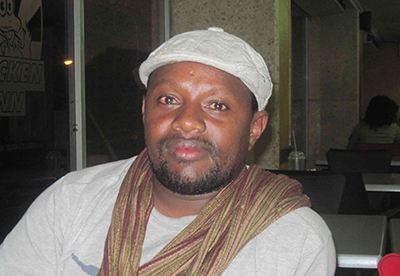Nairobi, October 15, 2014—An Ethiopian court on Monday convicted journalist and magazine owner Temesghen Desalegn in connection with a 2012 defamation case, according to news reports and local journalists.
The Federal High Court in the capital, Addis Ababa, found Temesghen guilty of incitement, defamation, and false publication in connection with a series of opinion pieces published in Feteh (“Justice”), the journalist’s now-defunct weekly newsmagazine, according to local journalists’ translation of the charge sheet that was reviewed by CPJ. Authorities took Temesghen into custody Monday afternoon.
If convicted, the journalist could face up to 10 years in prison, according to his lawyer, Ameha Mekonnen. His sentencing is scheduled for October 27, according to news reports.
Information Minister Redwan Hussein said the case stemmed from articles published in Feteh about two years ago, according to news reports. Two of the articles discussed the peaceful struggles of Ethiopian youth movements for political change and two columns criticized alleged government efforts to violently suppress student protesters and ethnic minorities, according to the charge sheet.
Temesghen was briefly arrested in August 2012 on the same charges, but authorities dropped the charges and released him five days later without explanation, he told CPJ at the time. A judge in the Federal High Court revived the charges in February 2013 after a state prosecutor announced in court in December 2012 that the charges would be refiled against him.
The court on Monday also convicted in absentia Mastewal Birhanu, the former publisher of Feteh, with inciting the public to violence by printing the magazine, according to the charge sheet.
“In case the recent crackdown on current publications in Ethiopia did not illustrate authorities’ fear of independent voices, they have now resorted to convicting a journalist on two-year-old criminal defamation charges,” said CPJ East Africa Representative Tom Rhodes. “We urge Ethiopian authorities to drop this case–as they did once before–and free Temesghen Desalegn immediately.”
Authorities have routinely targeted Temesghen’s writing. In May 2012, he was given a four-month suspended prison sentence and fine after Feteh published a statement made by imprisoned journalist Eskinder Nega during his trial. Temesghen paid the fine.
The government ordered printers to block the distribution of Feteh in July 2012 in connection with a series of articles about the health of the late Prime Minister Meles Zenawi, local journalists said. Authorities blocked three other subsequent publications started by Temesghen, including Addis Times, Le’ilena (“Magnanimity”), and the latest, Fact, according to local journalists.
The last edition of Fact was published in September 2014 after authorities ordered printers to cease publishing the magazine, local journalists told CPJ. In August, the Justice Ministry accused Fact and five other independent weekly publications of inciting violence, publishing false news, and undermining public confidence in the government. All publications have since ceased publication.
Last week, an Ethiopian court sentenced in absentia to three-year jail terms the general managers of three of the publications, including Fact, Addis Guday, and Lomi. The general managers are accused of inciting the public by spreading false information and subverting the constitutional order, according to news reports.
A state crackdown on independent publications and bloggers has taken place in Ethiopia this year, prompting several Ethiopian journalists to flee into exile in 2014, according to CPJ research. With at least 17 journalists in jail, Ethiopia is the second leading jailer of journalists in Africa, second only to its neighbor Eritrea, CPJ research shows.
